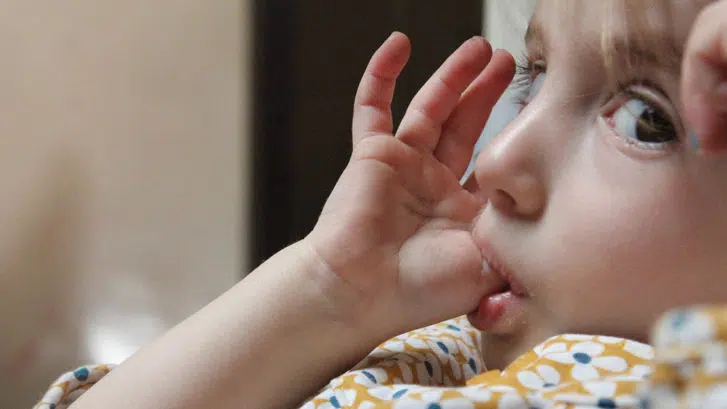Sucking is a newborn reflex for babies, and it is normal during the first few years of a child’s life before their permanent teeth develop. But, if your child fails to break the habit of thumb/finger sucking before the age of 5 and their permanent teeth are starting to come in, then it is time to help them stop.
According to American Dental Association, if a child continues sucking their thumb after permanent teeth have started coming in, it could result in jaw, teeth, mouth and palate problems. Thumb sucking causes constriction of the upper jaw and an open bite in the front, which is when the front teeth don’t touch. It is important to stop the habit as soon as possible. Here are some tips on how you can stop your child from thumb/finger sucking:
Know the Triggers: Thumb sucking helps a child to feel comfortable, secure and relaxed. If your child starts thumb sucking because of stress, identify the cause of stress and provide comfort by hugging and or saying reassuring words. If a ‘security’ blanket is held while your child sucks their thumb, consider hiding the blanket for a while so that the association is not continued between the item and the habit.
Positive Reinforcement: Reward your child whenever they stop thumb sucking. You can play at the park, read their favorite book or give them their favorite snack every time your child avoids thumb sucking. Mark your calendars at home and record your child’s progress and reward.
At home remedies: Mavala Stop is a bitter tasting polish that can be bought to paint on your child’s fingers/thumb to help them stop their habit. Pinning a long sock to their pyjamas is another option.
If none of these methods work, there are appliances that Dr. Gorlovsky at Windermere Orthodontics can make to help your child stop their habit. Please contact us at Windermere Orthodontics today, or you can visit us at any of our orthodontic offices in Cumming, Brookhaven and Suwanee, Georgia so we can help your son or daughter stop their habit before it causes negative changes to their mouth and face.
-Dr. Gorlovsky

